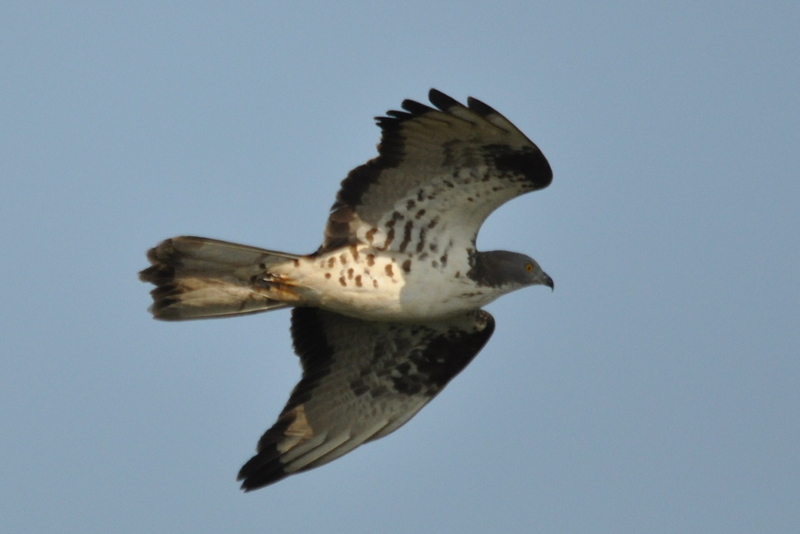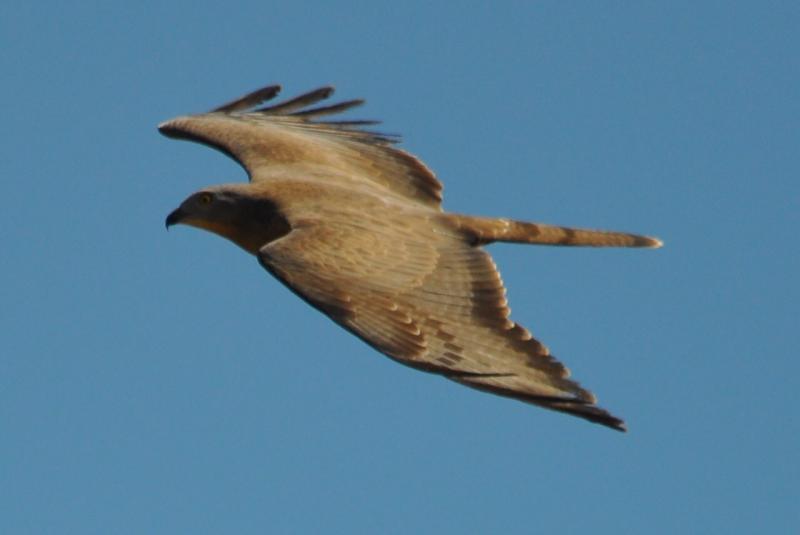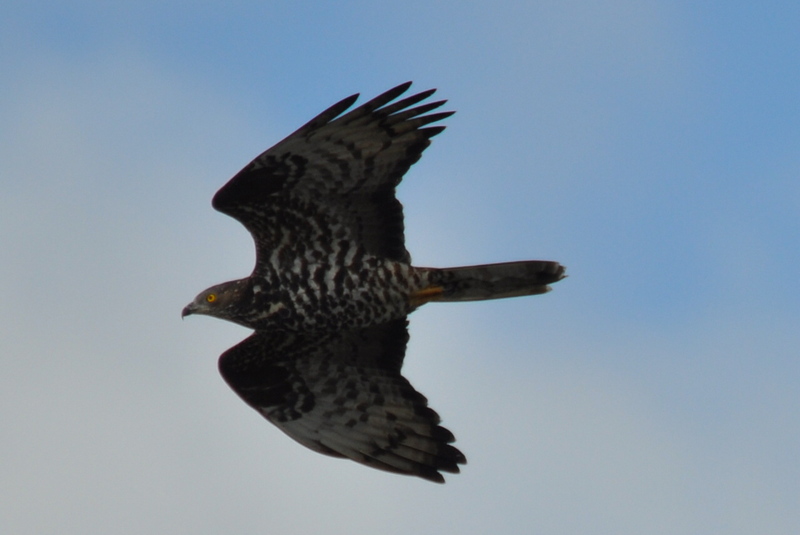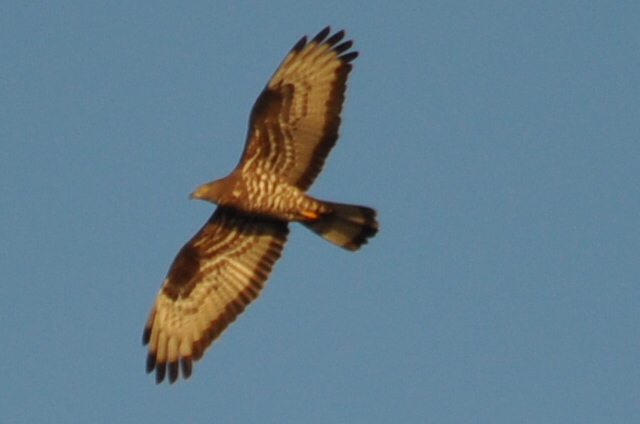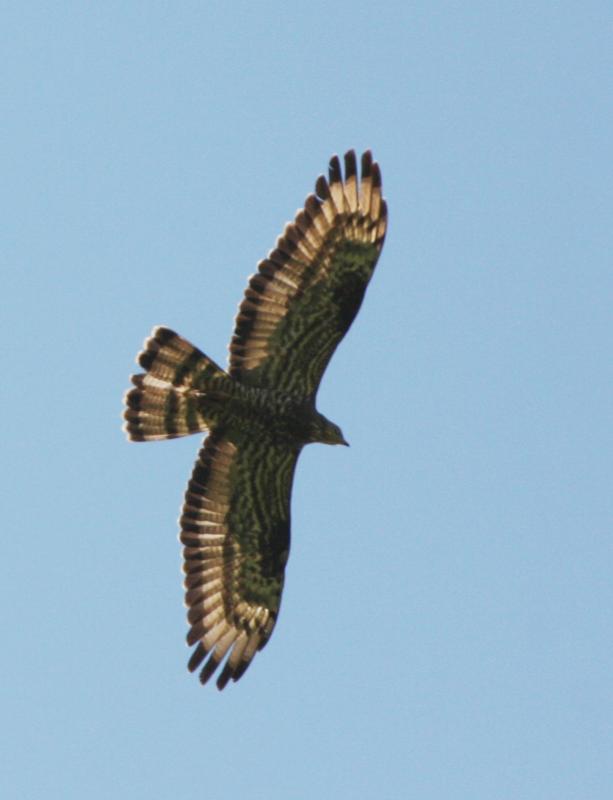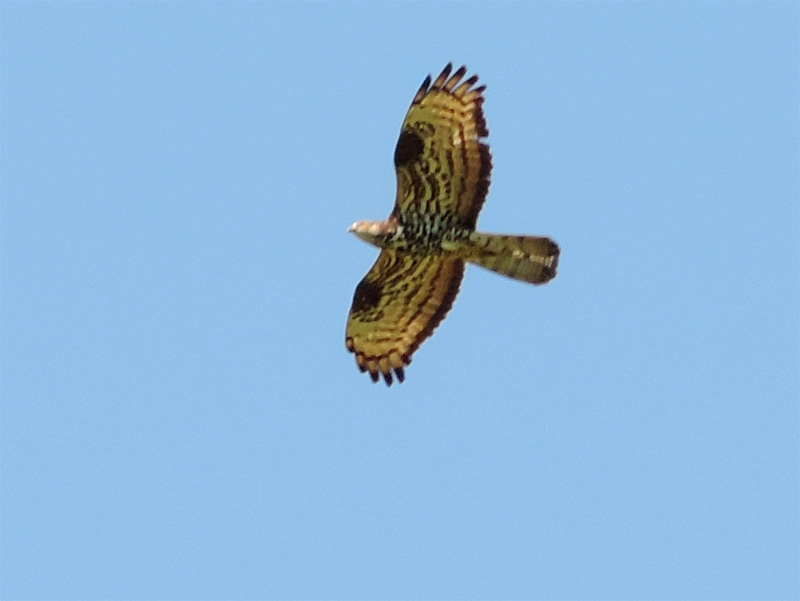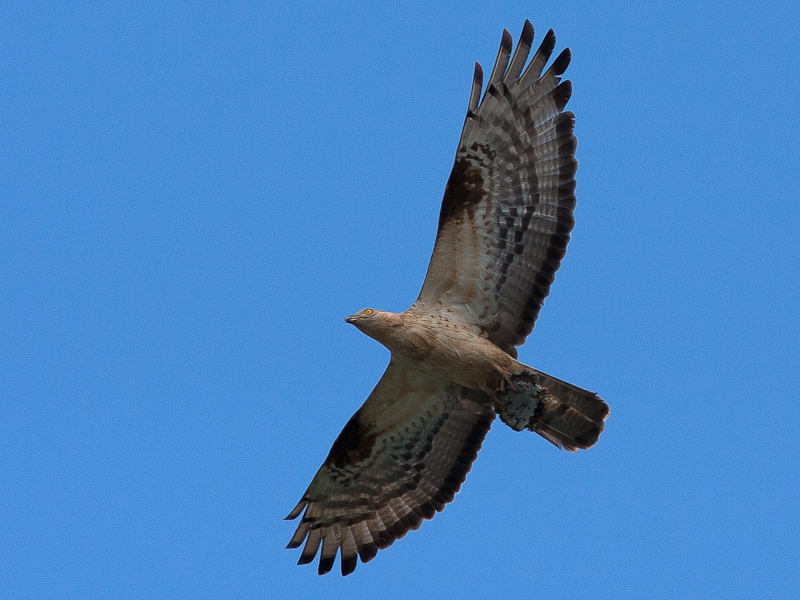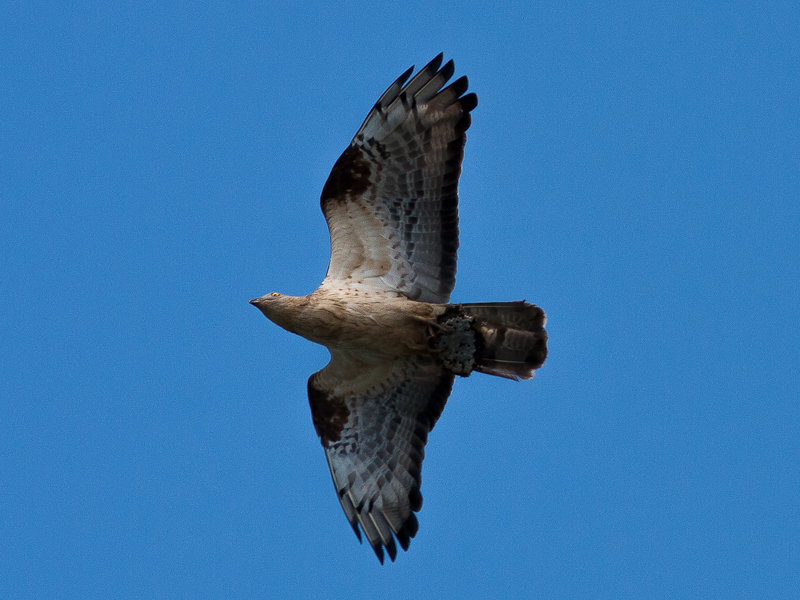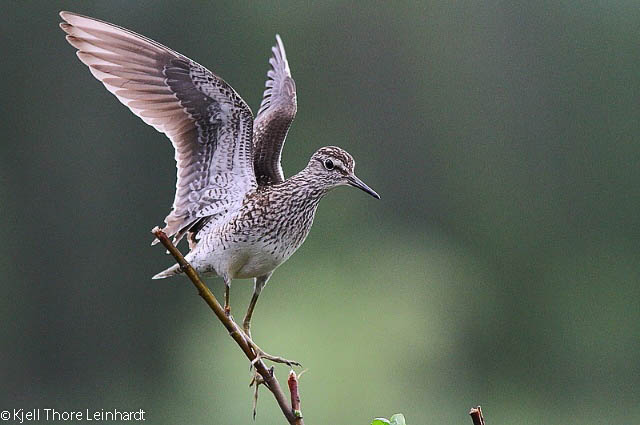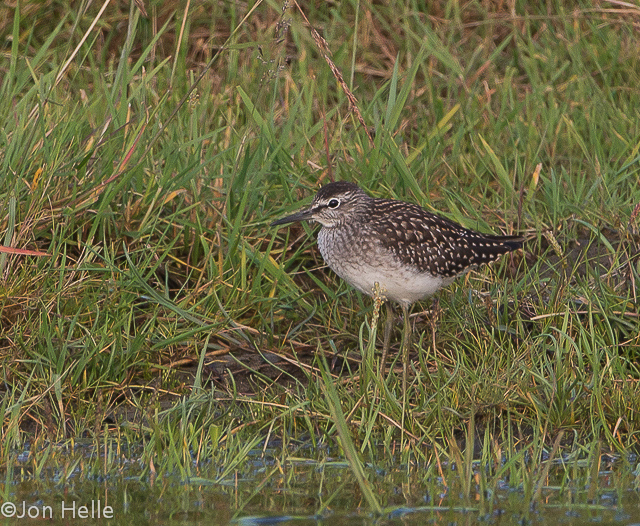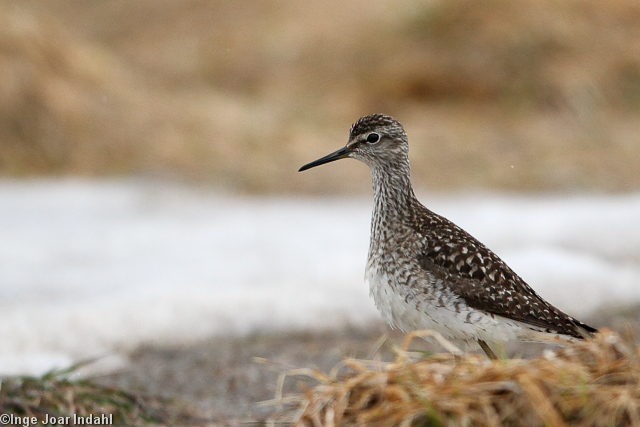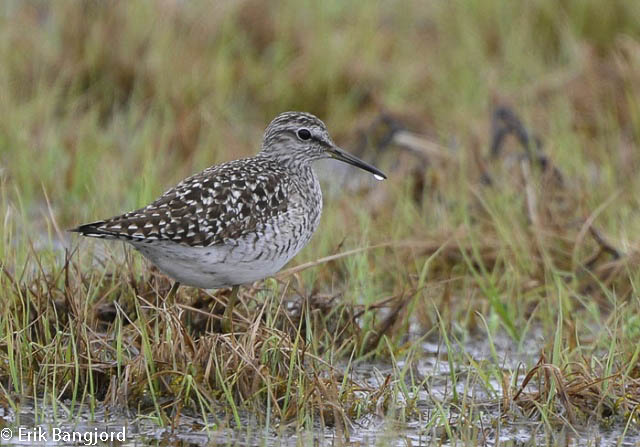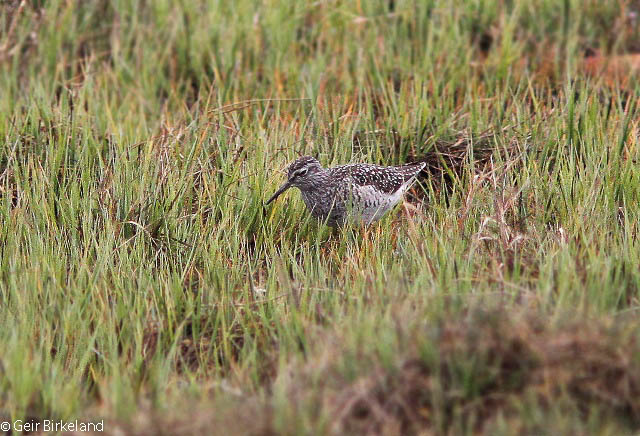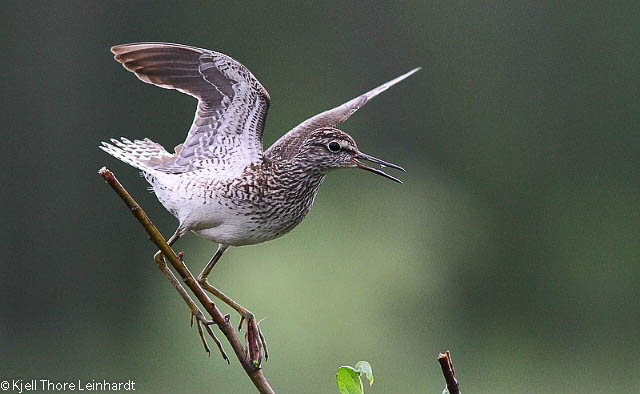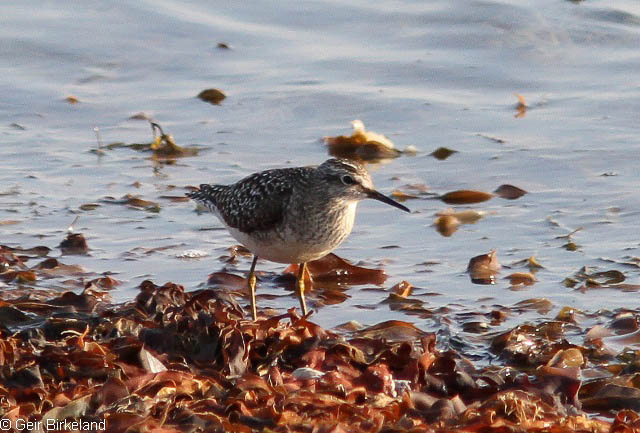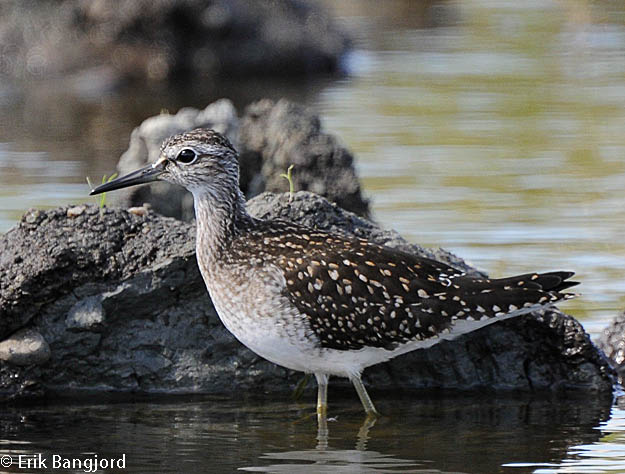Honey Buzzard (Pernis apivorus)
Wood Sandpiper (Tringa glareola)
Long tail, long neck and small head constitutes a characteristic profile. Adult males with grey head, females brown. Tail pattern is typical, and most obvious on adults: A broad dark terminal band and two or three smaller bands at base. Same pattern on flight-feathers. Middle of wing quite broad, creating a straight trailing edge when the bird is gliding with half-open wings. Wings held in a straight angle with primaries pointing slightly downwards when soaring. Tail often fanned and frequently twisted like a Kite to adjust position.
Sound:Call an ascending, then descending; "pjuuuuu" much thinner than buzzards, and with a distinct register break when changing pitch. May be confused with newly fledged Buzzard chicks.
Call:
Distribution:
Wikipedia: map (se also Xeno-canto below)
Ecology:Birdlife ecology
Links:
Observation.org Latest observations
Image search Flickr NB! May give other species
CCSounds:Recorded by OREVER,http://www.xeno-canto.org ,CC license
An energetic, small tringa wader. Most similar to Green Sandpiper. Differs by light underwings, larger white spots on back, diffuse border between speckled chest and white belly, narrower dark markings on tail and a supercilium that reaches behind eye. Plumage leaves an overall much paler impression than Green Sandpiper, particularly in flight.
Sound:Totally different from Green Sandpiper. Flight call a soft, but explosive "whiff whiff" , sometimes with only one syllable. Display call similar to redshank but with only two accented beats; a fast melodious "dee-loo", repeated in cycles.
Song:
Distribution:
Xeno-canto: map
Ecology:Birdlife ecology
Links:
Observation.org Latest observations
Image search Flickr NB! May give other species
CC
 English
English Albanian
Albanian
 Armenian
Armenian
 Bulgarian
Bulgarian
 Catalan
Catalan
 Croatian
Croatian
 Czech
Czech
 Danish
Danish
 Dutch
Dutch
 Finnish
Finnish
 French
French
 Georgian
Georgian
 German
German
 Greek
Greek
 Hungarian
Hungarian
 Italian
Italian
 Latvian
Latvian
 Lithuanian
Lithuanian
 Macedonian
Macedonian
 Norwegian
Norwegian
 Polish
Polish
 Portuguese
Portuguese
 Romanian
Romanian
 Russian
Russian
 Sami : Lule sami
Sami : Lule sami
 Sami : North sami
Sami : North sami
 Sami : South sami
Sami : South sami
 Scientific names
Scientific names
 Serbian
Serbian
 Spanish
Spanish
 Swedish
Swedish
 Ukrainian
Ukrainian


